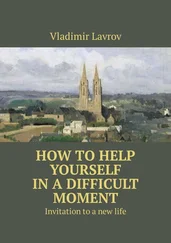I took the theory to class with me the next day, thinking I’d start small and test the waters, nodding along during someone else’s argument or raising my hand in a group of “pro” or “con” opinions during Civics 102. Back in Moscow I’d had plenty of practice trying on beliefs like sweaters and socks, to see which ones had holes in the lining and which might help me to survive. But that had been a matter of life and death. This was just participation points, adding up to a small percentage of our term grade. Still, I didn’t want to fail.
Civ 102 was doing a unit on the Greek polis system and the students had been divided into four groups, each assigned a different city-state. We got points for presenting compelling insights about our home polis , and the winners had been promised ice cream. My corner of the room was Corinth—not objectively the most exciting, the height of neither scholarship nor war. But the project had inspired a cliquishness that had little to do with the realities of ancient Greek life. “Athens was the center of everything important,” sniffed a girl named Abigail. “Of course we’ll win.” “Sparta will kill you ,” hissed her best friend, Denise, pencil gripped in her fist like a dagger. I’d been conducting diligent research and offering up a trove of facts about Corinthian exports each class period—which was, I thought, the point of the exercise. But other girls wrote snazzy jingles. They made lightning bolts out of yellow paper as offerings to Zeus, and used the popularity of their projects as proof of their superiority in Greek society. Several of my teammates had complained privately that Corinth’s financial status—as a center of trade and a source of fine pottery—was being unjustly ignored because Athens had better temples.
“We’re the rich ones,” they whispered. “Who wouldn’t want to be the rich ones?”
Yes , I thought. Who? It was a fashionable enough sentiment that everyone would agree with it, general enough that anyone could have come up with it. And so, mid-period, when the teacher asked for arguments designed to win the daily rhetorical challenge, I raised my hand while the rest of my teammates were distracted arranging a row of flowerpots painted with black tempera.
“I think it’s been overlooked—”
“What’s that, hon?” asked the teacher, leaning closer as if to hear better, but also interrupting me. They were all eager to be the one to “get through” to me, or else (I suspected) to prove I was at heart a Soviet spy. I frowned, and muddled on.
“I said, I think we’ve forgotten how wealthy Corinth was. A, um, a—” I struggled to remember the exact term I’d underlined in last night’s reading—“seat of commerce and industry.”
Silence in the room for a beat. Then one of the Athenians said, “So?”
My cheeks flushed. “So I mean, they were rich.”
“So what ? Did they have scholars ?”
“They had, um, the Bacchidae, an aristocratic—”
“Boring. We had Socrates.”
Behind me, I heard a pair of girls whispering, “Sure, until you murdered him .” This was my chance. In truth, I didn’t care about the ice cream social or even being right. But people were watching me, almost interested. The teacher was taking notes. No one was asking me about my parents, reminding me how I’d left them, how they’d vanished one by one—
“Maybe Athens had Socrates,” I said, “until they killed him. But money is power. Money is always power.” New sweaters, I thought. Angora wool. Penny loafers. Midnight cookies. Nail polish. The right to walk into a store and see the counter girl turn her smile up extra bright, and the ability to buy and buy, to change your life in small but measurable ways.
“That’s… Well—” The teacher peered around the room, waiting for a rebuttal. None came. “That’s a very vigorous position. I think we’ll give the rhet point to Corinth today.”
I let out a small puff of air. Really, it worked? And so easily, too. My teammates surrounded me, patting my back and offering congratulations. One called me “buddy” and another told me to keep it coming with the good stuff. Even the teacher gave me an encouraging nod, placing a gold star next to my name in her activity log. I squirmed under the unfamiliar touch of so many gentle hands, but still—I smiled.
7.
I hesitate to describe the work that earned me Bs and Cs that year as plagiarism: every word I wrote was my own. It’s just the ideas that were borrowed, and the passion for them. My instructors were all relieved to find my papers suddenly passable—no one likes to fail the war orphan. And for my part, I came to enjoy whipping up a textual froth from the enthusiasms of Tolstoy, Thoreau, or de Tocqueville. If my ideas contradicted themselves from one assignment to the next—well. That was seen as the purview of youth. No one minded theft or inconsistency, even vitriol, so long as it meant you were making a statement. This was my first great lesson in being American, and I took it to heart.
8.
Of course, Vera had no place at the Donne School then, except as a faint part of my memory, which I was always trying to excise. A character from the motherland, the life I left behind. Back where we met, there were no cozy split-levels or so-called French fries, no one calling you “little miss.” Moscow was a different beast. We had dancing bears, and the Arbat. We had underground businessmen with overlarge hats, and a winter so long and dark that it brought sense to fairy tales: why wouldn’t you make a deal with a witch if she promised to bring out the sun? Our Moscow was a city of men slurring and ruddy with vodka, of old women competent, by necessity, to swing an axe—or at least, my Moscow was. Vera breathed a more rarefied air. But we shared the Young Pioneers scout troop, whether she remembers or not.
Our scoutmaster would call: Vsyegda! and we would shout back: Gotov! Always prepared. The cry of scouts across the globe. I joined the group at twelve, a little later than most, as I’d spent all my previous summers working in the countryside, and Vera showed up halfway through that same year, though I was never clear on her age. Older, surely. That was the brief, golden period in which my father was thriving in the new world order, and our house’s star seemed on the rise. It would not last long, nor would it end well, but I didn’t know that yet.
I remember walking into the meeting hall that day, following close behind two girls named Lidya and Marta whom I’d been hoping to befriend. I was watching their shoulders move up and down as they skipped along, the slender points of them rising up almost like the tips of wings. There was something about the turn of their ears, the tapering of their ankles that I couldn’t keep my eyes off of, a magnetic drag in their every shift and shrug—I was terribly intent. My lips parted slightly, ready to speak if only I could find the right words. So while they saw the new girl right away, for a moment I missed her.
When Lidya and Marta stopped abruptly, I ran into Marta’s back, sending both girls bubbling across the room in a fit of giggles. I looked up, face burning. But Vera took little notice of us. Who knows how long she’d been there, alone. Sitting on the edge of a wooden folding chair, one foot perched on the other. Red scarf cheerful and knotted, just like the rest of us. Her white shirt, though, was darted in here and there to fit her figure, and her skirt was hemmed an inch too high. Our chairs were organized in an imperfect circle and I sat opposite her, each of us at an apex. I admit I didn’t like her then. Something in her gaze, which wouldn’t rest on any face and just kept flitting around, to the top of the corrugated wall, to Lidya’s inexpert fingernail polish, to the ceiling, to the floor.
Читать дальше












